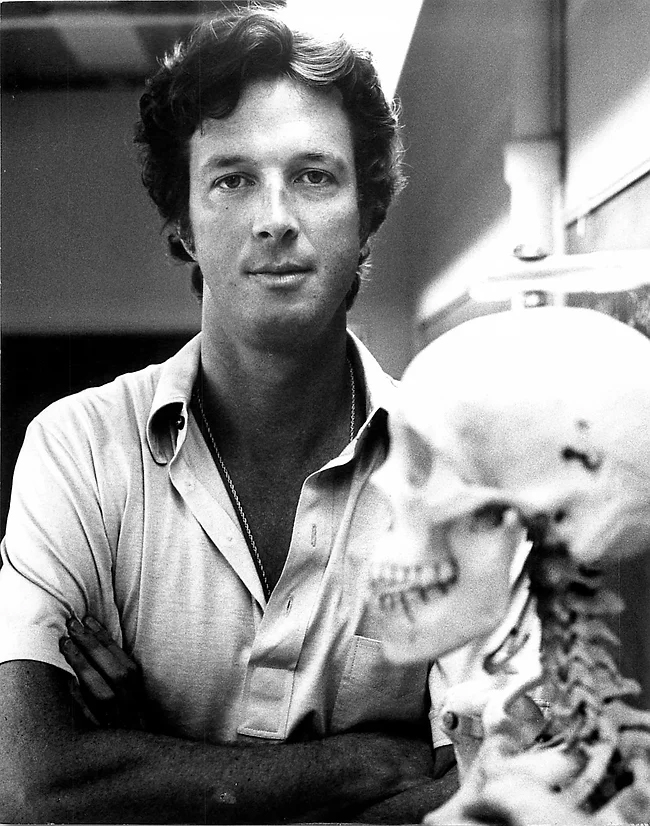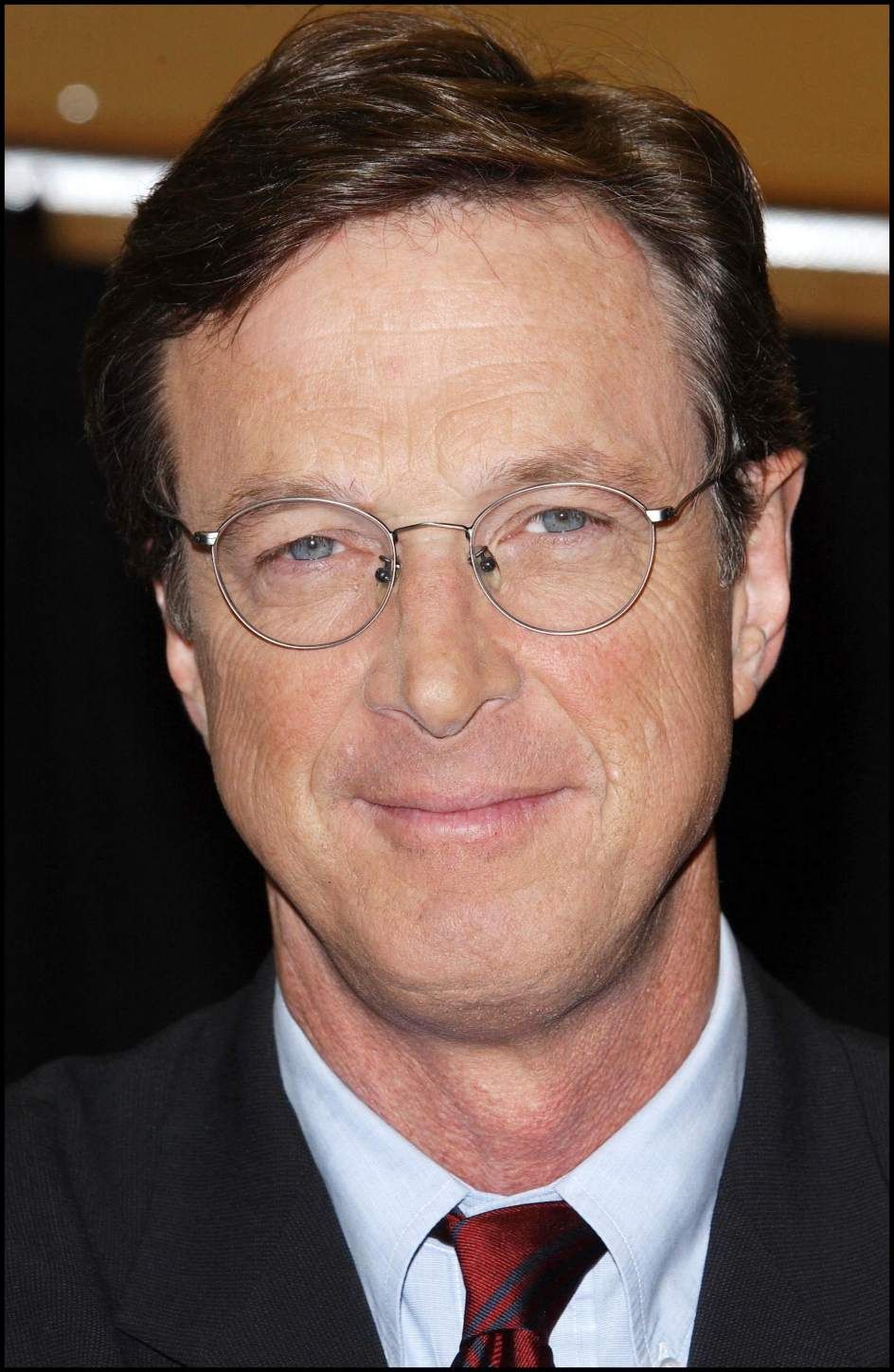Michael Crichton - A Master Storyteller's Enduring Influence
Table of Contents
- The Life of Michael Crichton
- Who Was Michael Crichton Beyond His Books?
- What Kinds of Stories Did Michael Crichton Tell?
- How Did Michael Crichton's Books Become Films and Shows?
- The Unique Way Michael Crichton Wrote
- What Impact Did Michael Crichton Have?
- Michael Crichton's Literary Accolades
- A Look at Michael Crichton's Published Works
When you think about stories that truly make you think, stories that bring science to life in ways that feel very real, the name Michael Crichton almost certainly comes to mind. He was a person who wrote a lot of books, made films, and had a big part in creating television shows that captured the attention of many people all over the globe. His work, in a way, often explored big ideas about what might happen if scientific breakthroughs were not handled with enough thought or care. He had a knack for making complicated topics feel approachable and incredibly exciting, which is that kind of magic many writers hope to achieve.
This individual, Michael Crichton, really had a gift for bringing together different areas of knowledge. He would take things from science, medicine, and even technology, and then weave them into tales that kept readers on the edge of their seats. It wasn't just about telling a good story; he often encouraged people to think about the bigger picture, like what it means for people when new discoveries come along. His way of putting words together truly made his stories stand out, making them something people talked about for a long time after they finished reading or watching.
We're going to take a closer look at the path this truly prolific creator walked, from his early days to the many different things he brought into the world. You'll get to learn about his books, the shows he helped bring to life, the movies based on his ideas, and a little more about the lasting mark he left. It's a chance to get a better sense of a person whose ideas shaped a lot of what we read and watch, and who, basically, had a very significant influence on popular culture.
The Life of Michael Crichton
John Michael Crichton was born in Chicago, Illinois, on October 23, 1942. His early years, however, were spent in Roslyn, New York, where he grew up. His father, a journalist by trade, played a part in shaping young Michael's future interests. He gave him encouragement to write and also to use a typewriter, which, you know, might seem like a small thing, but it probably helped set him on a path of putting thoughts onto paper. Michael Crichton eventually moved to Los Angeles, California, where he passed away on November 4, 2008. His journey through life saw him become a truly well-known American writer, someone recognized for the amount of careful thought he put into his popular stories.
Looking at his personal details, it's pretty clear he had a background that blended scientific interest with a passion for storytelling. He was, actually, quite good at academics, graduating with high honors from his studies. This foundation, in some respects, probably gave him the ability to create tales that felt both imaginative and grounded in believable ideas. He was a person who wore many hats throughout his life, stepping into roles like a medical doctor, someone who taught, a director of films, and a writer for the screen. Yet, he is perhaps most widely recognized for the books he penned, which, basically, brought him a lot of fame.
Here is some personal information about Michael Crichton:
| Full Name | John Michael Crichton |
| Born | October 23, 1942, Chicago, Illinois, U.S. |
| Died | November 4, 2008, Los Angeles, California, U.S. |
| Nationality | American |
| Occupations | Writer, Filmmaker, Physician, Teacher, Screenwriter |
| Education | Harvard University (A.B. in Biological Sciences, M.D.) |
| Notable Works | The Andromeda Strain, Congo, Jurassic Park, ER (creator) |
| Books Sold | Over 200 million copies worldwide |
| Novels Written | 29 |
Who Was Michael Crichton Beyond His Books?
Michael Crichton was, in a way, more than just a person who wrote words for a living. He had a mind that seemed to work across many different fields. He was, for instance, someone who had trained as a doctor, which gave him a unique view into the workings of the human body and medical procedures. This background, you know, often showed up in his stories, adding a layer of realism to the situations his characters faced. He also spent time as a teacher, sharing his knowledge with others, which, honestly, speaks to a desire to communicate and explain complex ideas.
Beyond his medical and teaching pursuits, Michael Crichton also stepped into the world of computer programming. This interest in how technology works and what it could do clearly found its way into his storytelling, especially in tales where technology played a big part, for instance, in creating something amazing or, sometimes, something that got out of hand. He was, you could say, an adventurer at heart, someone who seemed to seek out new experiences and ideas, and these experiences often fueled the compelling narratives he created. His ability to blend these different aspects of his life into his writing is that kind of thing that made his work so distinctive and, frankly, very appealing to a broad range of readers.
What Kinds of Stories Did Michael Crichton Tell?
Michael Crichton had a particular talent for crafting stories that fell into several popular categories. His books were, in some respects, typically found within the science fiction world, where he explored what might happen with new scientific ideas. He also wrote what people call medical fiction, stories that often took place in hospitals or dealt with medical dilemmas, which, you know, made sense given his own background. And then there were the thrillers, stories that kept you guessing and your heart pounding, often with a sense of urgency and danger. This mix meant that if you liked exciting plots with smart ideas, you'd probably find something by Michael Crichton to enjoy.
He was the person who gave us books like "The Andromeda Strain," a tale about a deadly alien microbe, and "Jurassic Park," which, basically, brought dinosaurs back to life in a very dramatic way. Other well-known works include "Congo," a story about an expedition into the African jungle, "Rising Sun," a crime story with a look at cultural differences, and "The Terminal Man," which explored the idea of brain implants. He also wrote "The Lost World," a follow-up to "Jurassic Park," and "Airframe," which took a look at the airline industry, plus "Timeline," a story that involved travel through time. These stories, truly, show the wide range of his imagination and his ability to make many different topics feel exciting and, actually, very relevant.
How Did Michael Crichton's Books Become Films and Shows?
It's pretty interesting how many of Michael Crichton's written works found their way onto the big screen and into people's homes through television. His stories, you see, often had a very visual quality to them, making them quite suitable for film adaptations. The plots were often clear, the characters faced big challenges, and the settings were often quite striking, which, basically, helped filmmakers bring them to life. Over a dozen of his books were turned into movies or television series, a testament to how appealing his storytelling was to a wider audience. This made his ideas accessible to even more people, those who might not have picked up his books but loved a good movie or TV show.
One of the most famous examples of his work making the leap to another medium is "Jurassic Park." That film, you know, became a huge cultural event, changing how people thought about special effects and storytelling in movies. But it wasn't just movies; Michael Crichton also had a hand in creating "ER," a very popular television show about an emergency room. This show, in some respects, brought medical drama to a new level, showing the fast-paced and often intense lives of doctors and nurses. His influence, therefore, extended well beyond the pages of his books, shaping what people watched for entertainment and, actually, making him a household name for many.
The Unique Way Michael Crichton Wrote
Michael Crichton had a very distinct way of putting his stories together, which made his writing stand out. He was known for doing a lot of careful checking into his topics before he even started writing. This meant that when you read his books, the scientific or technical details often felt incredibly real and believable, even if the overall story was a work of fiction. He had a way of taking what he learned from his checks and making it easy for anyone to grasp, so you didn't need to be a scientist to follow along with the complex ideas in his books. This approach, in a way, gave his stories a weight and a sense of possibility that truly captured readers' imaginations.
His writing style also tended to be quite direct and fast-moving. He didn't spend a lot of time on flowery descriptions; instead, he focused on the action and the unfolding of the plot. This made his books very quick to read and, you know, kept you turning the pages. He often used a sort of "what if" approach, taking a current scientific idea or concern and pushing it to its logical, and sometimes frightening, conclusion. This focus on consequences and the impact of human actions on the world was a recurring idea in his work. He was, basically, a master at building suspense and creating situations where characters had to face big, often life-or-death, challenges, which, honestly, made for very gripping narratives.
What Impact Did Michael Crichton Have?
The influence of Michael Crichton on popular culture and storytelling is, actually, quite significant. His books have sold a truly staggering number of copies, over 200 million worldwide, which is that kind of figure that shows just how many people connected with his work. This wide reach meant that his ideas, especially those about the potential dangers of unchecked scientific progress or the moral questions surrounding new technologies, became topics of discussion for a very large audience. He made science fiction feel relevant and immediate, showing how close some of those imagined futures might be.
Beyond the sheer number of books sold, Michael Crichton's impact can be seen in the way he influenced other storytellers. Many writers and filmmakers have, in some respects, drawn inspiration from his method of blending careful research with thrilling plots. He showed that you could write popular books that also made people think about important societal issues. His creation of "ER" also changed the landscape of television drama, setting a high standard for medical shows that followed. He was, in a way, a visionary in how he combined different forms of media to tell his stories, leaving a lasting mark on how we consume entertainment and, frankly, how we think about science in our daily lives.
Michael Crichton's Literary Accolades
Throughout his career, Michael Crichton received recognition for his writing, showing that his stories were not only popular but also well-regarded by those who judge literary works. One notable honor he received was an Edgar Award. This award is given for excellence in mystery writing, which, you know, makes sense given the thriller elements often present in his books. It points to the fact that his ability to craft suspenseful plots and intriguing mysteries was seen as top-notch by others in the field.
While his primary fame came from the widespread appeal of his books and their adaptations, these sorts of recognitions help to cement his place as a writer who was not just entertaining but also, in some respects, truly skilled at his craft. It shows that the excitement and engagement his stories brought to readers were also appreciated for their construction and the way they were put together. He was, basically, a person whose work resonated with a huge number of people, and also earned the respect of his peers, which is that kind of balance many creators hope to achieve.
A Look at Michael Crichton's Published Works
Michael Crichton was a truly prolific writer, meaning he produced a lot of books during his lifetime. He wrote 29 novels, which is a very considerable number for any author. Some of these books were published under his own name, while others were released using different pen names, which, you know, is something some writers do for various reasons. Having a comprehensive listing of all his novels, including those written under other names, helps to show the full scope of his creative output. These lists often include brief summaries of the stories and when they were first made available to the public.
When you look at a complete collection of Michael Crichton's books, whether organized by when they came out or by the order of events in the stories, you get a good sense of how his ideas developed over time. From early works like "The Andromeda Strain" to later ones such as "Airframe" and "Timeline," you can see a consistent interest in science, technology, and the human response to rapid change. He created stories that were, in a way, always pushing boundaries, whether it was bringing back dinosaurs, exploring deadly viruses, or looking into the ethics of medical procedures. His vast body of work, honestly, continues to entertain and provoke thought for many readers around the world.
This article has given you a closer look at Michael Crichton, a truly influential writer and creator. We explored his life, from his birth in Chicago and upbringing in New York to his diverse career paths as a doctor, teacher, and filmmaker. We discussed the kinds of stories he told, often blending science fiction, medical themes, and thrilling suspense. You also learned about how his books made the leap to the big screen and television, with notable examples like "Jurassic Park" and "ER." We touched on his unique writing approach, which involved deep research and a fast-paced style, and considered the lasting impact he had on popular culture. Finally, we mentioned some of the awards he received and highlighted the sheer volume of his published works, including those under different names.

Biography - Michael Crichton

Pictures of Michael Crichton

Michael Crichton - The Official Site of Michael Crichton